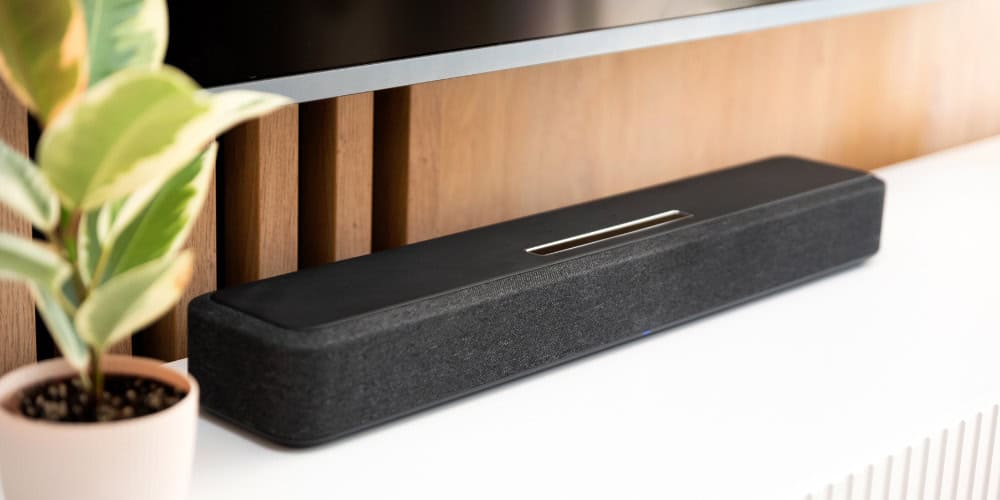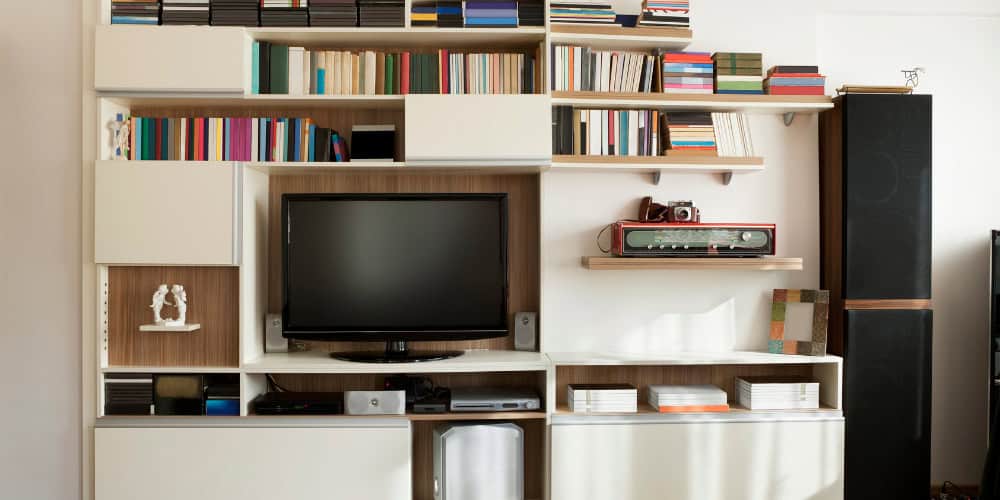As audio technology continues to evolve, the choices for enhancing home audio experiences have expanded. Two popular options are soundbars and bookshelf speakers.
Soundbars are sleek, all-in-one audio solutions designed to deliver immersive sound without the complexity of a multi-component setup. On the other hand, bookshelf speakers offer a traditional approach, providing higher fidelity and customization possibilities.
Today I am going to dive into the differences between soundbars and bookshelf speakers, highlighting their respective advantages, disadvantages, and cost effectiveness, aiding you in making an informed decision for your audio needs. Hopefully this will help you make a good decision for you!
I. Soundbars:
Simplicity and Convenience: Soundbars have gained immense popularity due to their simplicity and convenience. Here are some key characteristics and advantages:
- Compact Design: Soundbars are slim, elongated speaker units that can be easily mounted beneath a TV or placed on a stand, occupying minimal space.
- All-in-One Solution: With built-in amplifiers, multiple drivers, and often a subwoofer, soundbars offer a comprehensive audio solution without the need for separate components or complex setups.
- Ease of Installation: Setting up a soundbar is usually straightforward, requiring minimal wiring. Most soundbars also come with wireless connectivity options, making them ideal for clutter-free environments.
- Virtual Surround Sound: Many soundbars incorporate advanced audio processing technologies to create virtual surround sound, providing an immersive experience despite the lack of physical rear speakers.
While soundbars offer convenience and simplicity, they do come with a few limitations:
- Sound Quality: Due to their compact size, soundbars may not match the sound quality and fidelity of larger speakers, particularly when it comes to low-frequency response and dynamic range.
- Limited Customization: Soundbars are designed to deliver a balanced sound experience for general usage. However, they may not provide the customization options or fine-tuning capabilities that audiophiles or home theater enthusiasts desire.
See the best soundbars available >>
II. Bookshelf Speakers:
Fidelity and Customization: Bookshelf speakers have long been favored by audio enthusiasts and those seeking a more customizable audio setup. Let’s explore the distinct advantages and considerations associated with bookshelf speakers:
- Sound Quality: Bookshelf speakers, with their larger drivers and enclosures, can deliver superior audio fidelity, wider frequency response, and more dynamic range compared to soundbars. They excel in reproducing accurate and detailed sound across different genres.
- Versatility: Bookshelf speakers offer greater versatility as they can be integrated into various audio systems, from stereo setups to dedicated home theaters. They allow for precise placement and speaker positioning, optimizing the soundstage for an immersive listening experience.
- Customization and Expandability: With bookshelf speakers, you have the freedom to choose amplifiers, receivers, and other audio components that match your specific requirements. This level of customization allows you to fine-tune the sound and expand your setup as desired.
- Longevity: Bookshelf speakers tend to have a longer lifespan compared to soundbars, as they are often built with durable components and can be easily upgraded over time. This makes them a cost-effective investment in the long run.
While bookshelf speakers offer numerous advantages, it’s essential to consider potential drawbacks:
- Space Requirements: Bookshelf speakers are larger and require dedicated space for placement. They may not be suitable for compact living rooms or those seeking a minimalist setup.
- Setup Complexity: Bookshelf speakers demand more intricate wiring and configuration, including amplifier connections, speaker positioning, and cable management. Setting up and optimizing the audio system may require some technical knowledge.
See the best bookshelf speakers available >>
III. Cost Effectiveness:
Weighing the Options: Cost effectiveness can be subjective, depending on individual preferences and budget considerations. Here’s a comparative analysis:
- Initial Cost: Soundbars generally have a lower upfront cost, offering an affordable entry point for enhancing audio experiences. Bookshelf speakers, on the other hand, require separate components and can incur higher initial expenses.
- Long-term Investment: While soundbars may be initially cheaper, bookshelf speakers tend to be a more long-term investment. Their durability, upgradability, and potential for customization allow you to adapt and expand your audio setup over time without replacing the entire system.
- Audio Performance: Bookshelf speakers typically offer superior audio fidelity and a more immersive experience compared to soundbars. If audio quality is a top priority, bookshelf speakers may be worth the higher investment.
When deciding between soundbars and bookshelf speakers, consider your priorities, available space, and budget. Soundbars provide simplicity, convenience, and a more compact form factor, making them suitable for casual listeners or those with limited space. On the other hand, bookshelf speakers offer superior audio quality, customization options, and the potential for future upgrades.
They are ideal for audio enthusiasts and individuals seeking a more immersive and tailored listening experience. By weighing the differences and cost effectiveness of soundbars versus bookshelf speakers, you can make an informed decision that best suits your audio preferences and requirements.












